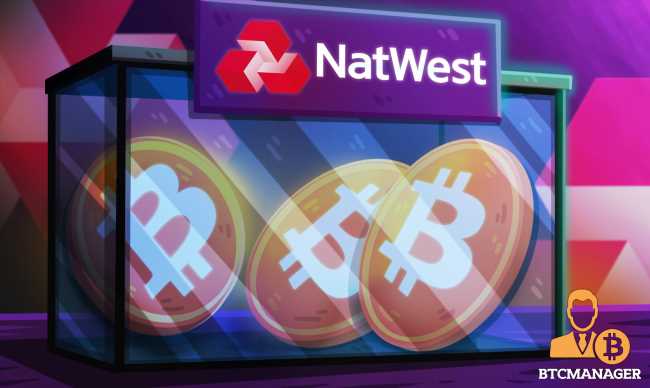A commercial bank in the U.K., NatWest, will bar clients who accept crypto payments, the Guardian reported on Apr 21.
No Crypto Payment without Background Checks
During an online shareholder, Morten Friis—who heads the bank Risk Committee, said cryptocurrencies like Bitcoin were “high risk” and that they were taking a cautious approach.
Accordingly, they had a low appetite to work with forward-looking, tech-receptive businesses that accept crypto as payment without conducting extensive background checks.
“We have no appetite for dealing with customers, whether taking them on as new clients or having an ongoing relationship with people, whose main business is backed by an exchange for cryptocurrencies, or otherwise transacting in cryptocurrencies as their main activity.”
“We think of cryptocurrencies as high risk, and we’re taking, for that reason, a cautious approach to this. It’s an area where regulation is very much in evolution, and we’ll obviously respond to that as things change.”
The FCA Position on Crypto
The banks seem to be waiting for regulatory clarity of which the U.K. Financial Conduct Authority (FCA).
The regulator recently warned people against unbridled hysteria in crypto as they could lose all their investment.
They cited the absence of regulatory cushion, as its chief, Nikhil Rathi, said they have never been that “blunt.”
Laws around crypto vary depending on jurisdictions.
However, already the U.K. has determined that cryptocurrencies are not legal tender.
The Crypto Adoption Wave
Still, the position of NatWest Bank doesn’t prevent others from countering.
An increasing number of firms now accept Bitcoin and other cryptocurrencies.
Tesla made headlines for investing $1.5 billion in BTC and later accepting payment in the coin. The electric automaker directly owns BTC in their balance sheet.
At the same time, WeWork and a real estate firm of the billionaire Caruso accept BTC as payment without intermediaries.
Meanwhile, PayPal—the world’s leading payment processor, now accepts its users to trade and store several cryptocurrencies, including ETH and LTC. Directly from PayPal’s accounts, users can pay for goods and services in crypto.
The wave of crypto adoption is also forcing central banks to adapt.
As BTCManager reported, the Bank of England (BoE) and the Treasury created a task force for the proposed Digital Pound.
Related posts:
Source: Read Full Article
